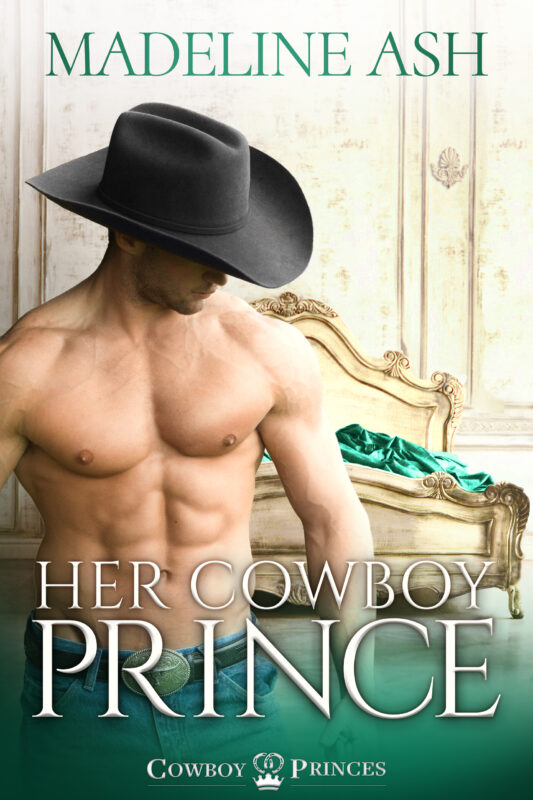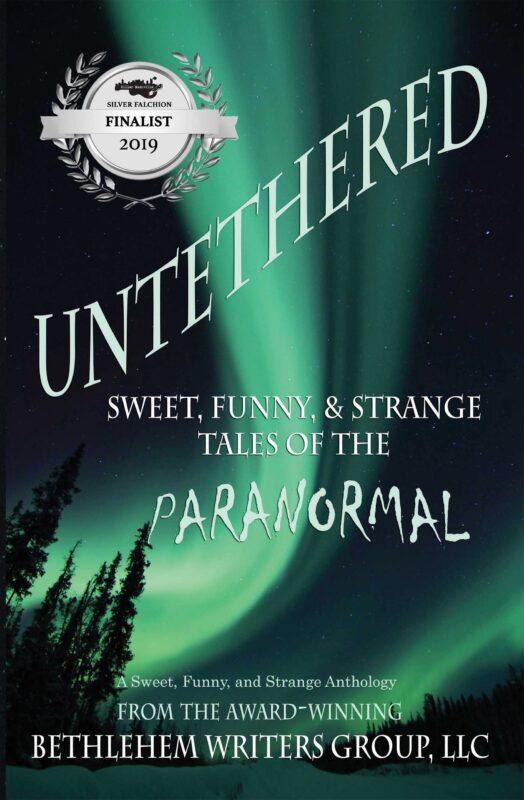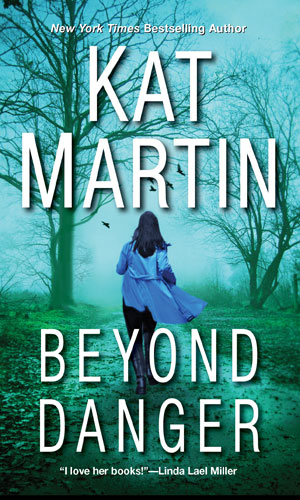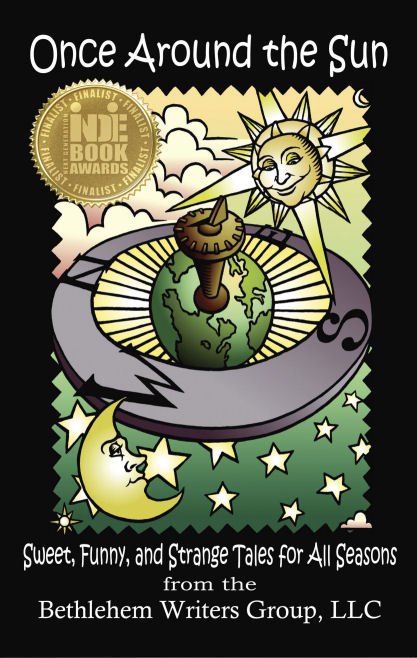TANYA HANSON The Chapel in Retrospect
June 13, 2006 by A Slice of Orange in category Archives tagged as Contest - Going To The Chapel
I love weddings. I’ve bought Brides magazines for years whether I knew a bride or not. Fortunately my husband and I got to host our son’s wedding two years ago, during which time I was NOT MOG-zilla. (Mother of the groom.) I admit to using a personal Nordie’s shopper for my own dress but managed to keep else everything Under Control AND to keep my nose out of the bride and groom’s decisions. But after choosing a harpist, they turned the music selection over to me.
Oh yeah. That started a major hobble down Memory Lane. I picked the lovely hymn “Let us Ever Walk with Jesus” sung at my wedding in California, and my mother’s in Oregon, and my grandmother’s in Kansas, and now my son’s…Bach’s Air on the G String (yes, that’s right. Don’t laugh) that was my processional in 1974. Morning Has Broken, the Cat Stevens hit from that same era that my mother allowed in church only because I found it in an Old English Hymnal and proved that Cat hasn’t written it. (My original choice, John Denver’s Sunshine on my Shoulder was staunchly pooh-poohed by my staunch mother, but if you listen to the lyrics, they’re wedding-worthy.)
Well, my own wedding has naturally turned to haze. And in similar fashion, that year of planning and being SuperMog has evaporated into just a few beautiful Malibu hours, too. Fortunately we still have a daughter. And a niece who’s set a date her bridegroom will never forget: 07-07-07.
But can I take you to the chapel in retrospect? I mean, after-the-fact? Like twenty-five years later? Not only did my husband Tim (a hardbodied fireman with not one romantic chromosome) surprise me with a trip to Maui on our tenth anniversary (during which outing the helicopter pilot played a tape of the infamous Air on the G String while over the Io Valley), my non-romantic spouse gave me the the best romance novel scene ever in 1999 when he took me to Kauai for our twenty-fifth. This time wasn’t a surprise, the trip at least. On the actual day of our anniversary, we wandered the grounds of the resort and came upon the outdoor bar where an entertainer was warbling the Hawaiian Wedding Song.
I turned to Tim and said something profound, like “Wow, that’s apt.”
His reply: “Then I guess it’s time for this.” Reaching into his pocket, he pulled out an eternity ring of diamonds and my birthstone, sapphire.
He hadn’t planned the outdoor singer at all. Or the helicopter Air on the G, you know. I guess it’s just, you know, love and luck. Which is my reward for having fainted the first time I was ever a bridesmaid. At the altar and all. Well, it was Arkansas, in July, with both temperature and humidity at about 150….
Tanya Hanson
THE OUTLAW’S WOMAN
url: http://www.tanyahanson.net/
JACKIE RADOUMIS: Going to the Chapel
June 12, 2006 by A Slice of Orange in category Going to The Chapel tagged as Contest - Going To The Chapel
Going to the chapel…I wondered if I’d ever get my turn. There were only two of us not married from our high school group. I’d recently turned twenty-one, did my share of dating, but was getting discouraged. I didn’t want to end up a died-on-the-vine virgin. How humiliating would that be?
In the summer of 1960 a girlfriend and I were visiting her aunt and uncle at their apartment. There was a big pool and lots of singles living there, including a great looking guy who wore Bermudas. I met him the next day. His name was Nick, and he looked even better in his swim trunks…a real Greek god. Have I mentioned that Nick’s my favorite name? In fact, in my whole life I’ve never met a Nick I didn’t like. And to top it off my stepfather’s name is Nick and he’s the best dad in the world.
Nick was nice, friendly, funny, but not a flirt. He looked in my eyes while we talked. He didn’t stare at my bosom like most guys did. Or, at least he wasn’t obvious about it.
I’d always planned to marry a man with an education, close to my age, a guy who’d never been married or had children. Nick was ten years older than I. He’d quit school to go to work and got his high school credits while serving as a See Bee in the Navy. He was divorced with a seven-year-old daughter. However, none of that mattered. He was all I’d ever want. Someone I’d love forever. As for Nick, he had promised himself never to marry again, but how could he resist a gal like me? Obviously he couldn’t.
GOING TO THE CHAPEL: Nick is the baby of nine in an all-Greek family. With four brothers and three sisters still living, there was love to spare and pranks galore. The most unforgettable prank was when our best man, Nick’s brother Al, nearly convinced my mom that it was Greek tradition for the best man to spend the first night with the bride. Was he serious? Ha! My dad knew a kidder when he saw one.
Nick and I were both on a tight budget, so I made my own dress. We kept everything very simple…cake, coffee and punch. I’ll never forget the look on Nick’s face when daddy walked me down the aisle, nor will I ever forget the sight of my groom in a white dinner jacket and black tux pants. It’s what love songs are based on. I was ready to begin my new life with Nick…definitely a keeper.
I learned later that when Nick and his groomsmen changed into their tuxes, Nick discovered that his shirtsleeve was ripped from the shoulder all the way down to his cuff. It was too late to exchange it, and no one would notice as long as he kept his jacket on, so ripped shirt and all he finished dressing. The guys went into the sanctuary to wait with the minister for their next cue. Suddenly one of Nick’s jacket buttons hit the floor. All the guys dropped to their hands and knees in search of the white button hiding somewhere on the flooring of black and white linoleum squares. Time was marching on. The minister found it then looked out into the pews where a few early guests awaited and asked if anyone had a sewing kit. The mother of our replacement flower girl had one and offered to sew the button back on. Talk about fate! The original girl’s mom might not have been as well prepared for such emergencies.
THE PROCESSIONAL: My nervous and excited mom had trouble dealing with her “little girl†getting married and leaving home, even though she adored Nick. She’d taken some medication to calm her down and calm her down it did. Most of the day’s happenings became but a vague memory in her mind. She was supposed to stand up when the organist hit the note to signal the beginning of the wedding march, and the guests would follow her lead. Then daddy and I would come down the aisle. However, she stood at the signal for the processional. The entire wedding party along with everyone else in the church stood through the full procession. There was some confusion to say the least, but it all worked out, with the last few participants running up the aisle with the bewildered flower girl and ring bearer tagging along behind.
It was my turn. Blissfully unaware of all the craziness in the sanctuary, daddy and I drifted languidly up the aisle and stopped before God, the minister and Nick. Our vows were lovingly exchanged and Nicholas Tom Radoumis and Jacqueline Allene Nicholson were united in marriage ‘til death do us part or Kingdom Comes.
THE RECEPTION: Nick’s car club consists of longtime friends. Nick had learned only moments ago that the gang had rented a cabin in Big Bear for the weekend, and they intended to kidnap me and take me with them to the mountains without my groom. I was incensed. We only had four days for our honeymoon, and I sure as heck didn’t plan to spend it without my man. During our entire reception I kept Nick in an arm-lock that that would have made Gorgeous George proud.
THE HONEYMOON: Nick’s former roomie made reservations for us at the Sands in Las Vegas for our wedding gift. When we went to check out, we learned that the guy hadn’t paid the bill. You know what they say about assumptions. Thankfully, our best man and my dad gave us some cash as we left for our honeymoon. We paid the bill and avoided spending the remainder of our honeymoon in a Nevada jail.
We celebrated the forty-fifth anniversary this year of our February 11, 1961, GOING TO THE CHAPEL, and, no, we weren’t riding in a covered wagon with Indian arrows wizzing by!
Jackie Radoumis has won one Golden Heart and finaled two other times, and she’s finaled or placed in several other contests. She is a long time member of OCC/RWA and has served in many positions on the Board of Directors, including Co-President. Jackie is also the winner of OCC/RWA’s Orange Blossom Award for exceptional service.
GERALYN RUANE: Claim Your Day
June 9, 2006 by A Slice of Orange in category Going to The Chapel tagged as Contest - Going To The Chapel
Dixon.
I once went a wedding that was all about Dixon.
Was he the bride? The groom? No. He was the father of the bride. And frankly, there was no way the wedding should have been all about him.
It all began the night of the rehearsal dinner. Dixon stood up to give a toast. But first, he handed out packets to each guest. PACKETS. Several pages of single-spaced material Dixon had found on the internet, “funny” stuff about what it means to be a wife, a husband, a married couple. For his toast to his daughter Elizabeth and her soon-to-be-husband Mitch, he read through it ALL. In a slow, monotone voice. This took about forty-five minutes.
When my guy Ron and his friend Larry, life-long best friends of Mitch, got up to make their toast, it went like this:
Elizabeth, we now see that Mitch likes you most
So we hope your marriage lasts
At least as long as Dixon’s toast
Dixon was thrilled, hamming it up for the guests. Sure, he was being teased and everyone was laughing, but they were laughing at a joke about HIM.
Next: The Wedding. The ceremony itself lasted about 5 minutes out in the frigid wind of a Connecticut November, then we all moved inside to party.
Dixon brought his clarinet to the wedding. He kept trying to get the band to let him play along, but he didn’t know any of the songs. So while they played without him and people danced, he kept going to the microphone trying to get everyone’s attention to say I know not what since his attempts to commandeer everyone’s attention never quite worked. Whenever the band had a break, though, Dixon – anxious to play his clarinet – would make them stay and play, “When the Saints Come Marching In” with him. Which I guess is understandable, since that’s such a classic wedding tune.
Finally, it was time to cut the cake. There were Mitch and Elizabeth, slicing into the mile-high abundance of confection.
And Dixon stepped in.
I mean, right in between the two of them cutting the cake! The man could not be left out of anything!
So, his daughter Elizabeth turned to him and flung the cut piece of cake right down the front of Dixon’s crisp white shirt. But before he could ham it up the crowd, she pushed him back away from the cake and moved closer to Mitch, shutting Dixon out.
Yay Elizabeth!!! Yay!!!
After two days of Dixon Dixon Dixon, she claimed her day!
Geralyn Ruane is the author of “Jane Austen Meets the New York Giants”
in Marlo Thomas’s book THE RIGHT WORDS AT THE RIGHT TIME, Vol. 2, April 2006, and the OCC/RWA Vice President
MICHELLE THORNE: Briana Got Married…
June 8, 2006 by A Slice of Orange in category Archives tagged as Contest - Going To The Chapel
I don’t have any children, but I do have a “child of my heart†Her name is Briana and she walked in to the bookshop one afternoon and asked if we needed any help. She worked at the florist across the parking lot and she really didn’t like the job and she loved books. I had a good feeling about her from the very first and she worked for me on and off for about 5 years. She helped move the store twice (no easy job) and she has almost worked me into the ground on numerous occasions. The girl is no slacker. Bree comes over to the house about every six months and MAKES me clean out my closet and then she take the bags with her when she leaves so I won’t go back and recover something that is “just too good to give awayâ€. She knows me well. We both love old Audrey Hepburn movies, vintage clothes stores (read thrift stores), great handbags, pizza and Luis. Luis is her brand new husband, and I love him because he adores her and that’s as it should be.
Briana’s dad was very strict and protective and he had chased off every guy who had come around, but Luis wouldn’t go. He hung in when both Briana and I thought he would just give up and say, “This is just too hard.†It took 3 years of dating and a year of being engaged but Bree’s Dad finally just couldn’t fight everyone any longer.
Briana and Luis got married on Saturday March 25, 2006 at the Beau Arts Theater in Glendale and it was the most special wedding I have ever attended. Luis and Bree did everything themselves from finding this great old venue, to decorating and making the favors. Both of them. This was their wedding, and it was glorious.
The theater was decorated like an old nightclub with round tables with palm tree votives and fresh gardenias. There were vintage post cards of old movie stars scattered around and chocolate champagne bottles for wedding favors. There was even a candy “cigarette†girl. There were large screen plasma TV’s that had a collage of Briana and Luis’s lives from baby pictures to engagement photos. It looked so pretty and so very Bree and Luis. Fun. Hip. Very Cool.
Bree wore her Mothers wedding dress for the ceremony as a surprise and then she changed into the dress she bought for the reception. It looked like the dress Audrey wore in “Funny Faceâ€. Bree wore my grandmother’s pearls as her “something borrowed.†She was possibly the most beautiful bride ever. The pearls are hers now to have and to hold forever because she is my girl.
The day seemingly went off without a hitch. There were, in fact, a few problems. But they were tiny and no one knew but the happy couple and they didn’t care. No crazed “bridezilla†moments. We all drank and ate and danced and thoroughly enjoyed ourselves. It was a day that anyone who was there will always remember because Luis and Briana were so happy and so in love. A moment of perfection in an imperfect world. Everyone was warmed by their happiness and I think I know why.
They wanted a marriage not a wedding.
Michelle Thorne
Bearly Used Books…123
Home of A Great Read
123 So First Street
Historic Old Puente, CA 91744
(626) 968-3700
GILLIAN DOYLE: Happily Ever After
June 7, 2006 by A Slice of Orange in category Going to The Chapel tagged as Contest - Going To The Chapel, Gillian Doyle

Strange as it may seem, I don’t remember going to the chapel for my wedding! As with most brides, that day came and went in a happy haze of wonder and excitement. Photos help jog the memory, thankfully. Or not. That hair!? I spent three hours at a salon to end up with a style that looked no different than ten minutes in hot rollers. And what’s with that lace headpiece for the veil? It looked like three fat flower petals draped over my forehead! What was I thinking?!! I don’t remember!
And oh, was I young! Not yet twenty-one. Some girlfriends had dreamed of college and careers. Others had dreamed of big beautiful weddings and fabulous bridal gowns. Me, I hadn’t dreamed of getting married, as in the wedding itself. My dream skipped over the ceremony to the Happily Ever After.
Truth be told, I would’ve been just as happy to forego the tradition in favor of living with Mr. Right in a mountain commune with flowers in my hair, no shoes on my feet, and a baby perched on my hip. However, my future husband did not view this alternative lifestyle with my same starry-eyed romanticism. Therefore, I found myself caught up in the preparations of a modest wedding, especially by today’s standards.
Unfortunately, we didn’t get to have “our song†sung in church because of one inappropriate word — “Loving you is so damn easy.†(Gasp!) Until I looked back through our wedding album, I had forgotten about having our guests read aloud from a program several times throughout the ceremony. Instead of just witnessing it, they got to be a part of it, including saying their own vows of support and prayers for our new life together. (Many thought we needed all the prayers we could get.)
I don’t remember throwing the bridal bouquet, either. But we have 8-mm movies of the toss…straight up and straight down, practically on top of my head. My maid of honor, eager to save me from disaster, is seen in a floor-length gown launching herself into the air like a football player intercepting a pass.
Oh, I do have one memory that lingered long after the wedding. It was (still is?) common to write all over the bridal couple’s car with shoe polish. Prison bars were painted on the windows of my husband’s new Mustang Mach I. A number of slightly-off-color, male-humor-type remarks were written on the metallic blue paint. Maybe the shoe polish was industrial strength. Maybe the scorching summer sun was the culprit. But no amount of waxing could remove the shadowy outline of those bars and barbs scrawled on our car.
One week after our wedding, we were visiting with another newly-married couple who’d had their first fight of their marriage. The new wife complained, “If I cook, he should take out the garbage, and vice versa. Marriage is a fifty-fifty deal—right? We each give fifty percent.â€
My husband quietly shook his head. “It’s not fifty-fifty. You both have to give one hundred percent.†He looked at me and smiled. My heart swelled. I nodded in agreement.
I may not remember going to the chapel on the day of my wedding. I may not even remember the exact words in the vows spoken at the altar. But I will always remember that moment one week later. In the simplest look, the simplest nod, we both knew that we would give one hundred percent of ourselves to this marriage, to each other. This summer we are celebrating thirty-two years of marriage.
Gillian Doyle
Author of Paranormal Suspense and winner of the 25 Days of Romance Contest
Affiliate Links
A Slice of Orange is an affiliate with some of the booksellers listed on this website, including Barnes & Nobel, Books A Million, iBooks, Kobo, and Smashwords. This means A Slice of Orange may earn a small advertising fee from sales made through the links used on this website. There are reminders of these affiliate links on the pages for individual books.
Search A Slice of Orange
Find a Column
Archives
Featured Books
LEIF Viking Glory Book One
Fate brought them together. Free will binds them.
More info →UNTETHERED: SWEET, FUNNY, AND STRANGE TALES OF THE PARANORMAL
Stoke the campfire and get ready for some chills and goosebumps when you open this paranormal addition to the award-winning Bethlehem Writers Group's "Sweet, Funny, and Strange" anthologies.
More info →BEYOND DANGER
New York Times bestselling author Kat Martin brings page-turning suspense to a tale of secrets and passions turned deadly . . .
More info →ONCE AROUND THE SUN: Sweet, Funny, and Stranges Tales for All Seasons
Stories about winter, spring, summer and fall, and seasons of life, seasons of love, and even seasons of discovery.
More info →Newsletter
Contributing Authors
Search A Slice of Orange
Find a Column
Archives
Authors in the Bookstore
- A. E. Decker
- A. J. Scudiere
- A.J. Sidransky
- Abby Collette
- Alanna Lucus
- Albert Marrin
- Alice Duncan
- Alina K. Field
- Alison Green Myers
- Andi Lawrencovna
- Andrew C Raiford
- Angela Pryce
- Aviva Vaughn
- Barbara Ankrum
- Bethlehem Writers Group, LLC
- Carol L. Wright
- Celeste Barclay
- Christina Alexandra
- Christopher D. Ochs
- Claire Davon
- Claire Naden
- Courtnee Turner Hoyle
- Courtney Annicchiarico
- D. Lieber
- Daniel V. Meier Jr.
- Debra Dixon
- Debra H. Goldstein
- Debra Holland
- Dee Ann Palmer
- Denise M. Colby
- Diane Benefiel
- Diane Sismour
- Dianna Sinovic
- DT Krippene
- E.B. Dawson
- Emilie Dallaire
- Emily Brightwell
- Emily PW Murphy
- Fae Rowen
- Faith L. Justice
- Frances Amati
- Geralyn Corcillo
- Glynnis Campbell
- Greg Jolley
- H. O. Charles
- Jaclyn Roché
- Jacqueline Diamond
- Janet Lynn and Will Zeilinger
- Jaya Mehta
- Jeff Baird
- Jenna Barwin
- Jenne Kern
- Jennifer D. Bokal
- Jennifer Lyon
- Jerome W. McFadden
- Jill Piscitello
- Jina Bacarr
- Jo A. Hiestand
- Jodi Bogert
- Jolina Petersheim
- Jonathan Maberry
- Joy Allyson
- Judy Duarte
- Justin Murphy
- Justine Davis
- Kat Martin
- Kidd Wadsworth
- Kitty Bucholtz
- Kristy Tate
- Larry Deibert
- Larry Hamilton
- Laura Drake
- Laurie Stevens
- Leslie Knowles
- Li-Ying Lundquist
- Linda Carroll-Bradd
- Linda Lappin
- Linda McLaughlin
- Linda O. Johnston
- Lisa Preston
- Lolo Paige
- Loran Holt
- Lynette M. Burrows
- Lyssa Kay Adams
- Madeline Ash
- Margarita Engle
- Marguerite Quantaine
- Marianne H. Donley
- Mary Castillo
- Maureen Klovers
- Megan Haskell
- Melanie Waterbury
- Melisa Rivero
- Melissa Chambers
- Melodie Winawer
- Meriam Wilhelm
- Mikel J. Wilson
- Mindy Neff
- Monica McCabe
- Nancy Brashear
- Neetu Malik
- Nikki Prince
- Once Upon Anthologies
- Paula Gail Benson
- Penny Reid
- Peter Barbour
- Priscilla Oliveras
- R. H. Kohno
- Rachel Hailey
- Ralph Hieb
- Ramcy Diek
- Ransom Stephens
- Rebecca Forster
- Renae Wrich
- Roxy Matthews
- Ryder Hunte Clancy
- Sally Paradysz
- Sheila Colón-Bagley
- Simone de Muñoz
- Sophie Barnes
- Susan Kaye Quinn
- Susan Lynn Meyer
- Susan Squires
- T. D. Fox
- Tara C. Allred
- Tara Lain
- Tari Lynn Jewett
- Terri Osburn
- Tracy Reed
- Vera Jane Cook
- Vicki Crum
- Writing Something Romantic
Affiliate Links
A Slice of Orange is an affiliate with some of the booksellers listed on this website, including Barnes & Nobel, Books A Million, iBooks, Kobo, and Smashwords. This means A Slice of Orange may earn a small advertising fee from sales made through the links used on this website. There are reminders of these affiliate links on the pages for individual books.









































